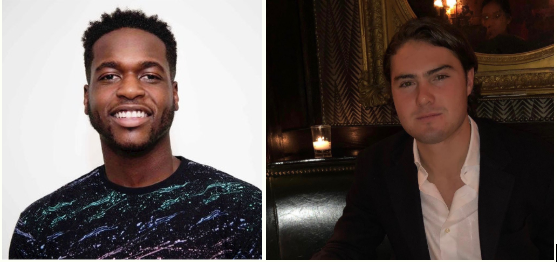2019 Interview with Team Releasur
December 20, 2019
By Barr Morgenstein
Releasur is an online platform aimed at connecting aspiring Hip Hop artists with the videographers needed for their projects. We sat down with the Releasur team to learn more about their startup and their exciting plans for the future.

What do you know now that you wish you had known when you started out?
When we first began, we wish we would have known how we were going to pivot our product and who the target customer we were going to focus on was. We would have done a lot more customer discovery before we dived in on what we believed to be the proper solution for the market. Instead, we went head first into something that we ended up changing once we got a better idea of the industry. Knowing this now, we would have built a better platform when going to our original developer.
How have you adapted (pivoted) your ideas from your original vision?
We started out managing artists artists (musicians, artists, photographers, videographers) in New York City. We realized that they lacked access to essential resources and services that would help them complete projects and gain traction as independent artists. Our job was to source those services to them. We realized that we could digitalize our service for a greater number of artists through an online platform. Releasur figured out where we could make the biggest difference, and that is supplying video services to artists. We connect Hip Hop artists to videographers to help them complete projects safely, securely, and at an industry standard.
How do you measure personal success?
A significant personal success will be when Releasur becomes the go to platform for any transactions revolving around videographers. When people think about creating/releasing any sort of video content, we want Releasur to be the first thing that pops into their heads. We strive to add value to music and arts communities, so the more we will help an artists’ career, the more “success” we feel we will have achieved.

From left to right, Antowan Wallace and Charles Le Pelley du Manoir (co-founders)
What advice can you offer anyone who wants to form a start-up?
First, make sure you do all the research on what exactly you are trying to create. Secondly, don’t focus too much on your product, but instead on the issues you are looking to solve with your product because then you will be able to identify how you can truly help the people and create a product that achieves just that.
What was the hardest part in the early stages of the start-up?
The hardest part about having an early stage start-up is keeping yourself motivated while constantly losing money. Another challenging part is deciphering the most important tasks and keeping your team focused on them.
Has being a woman/underrepresented minority founder affected your journey?
Yes, one of our founders, Antowan is an African American man from the Bronx and has dealt with micro-regressions from a former team member during our transition to an online platform. This changed the dynamic of our team and made us focus more on the business side of entertainment versus the artistic part.
What in your opinion may encourage more women and underrepresented minorities to take part in the entrepreneurial world?
We believe that the best way to encourage women/underrepresented minorities to take part in the entrepreneurial world would be for people in these underrepresented groups to see successful entrepreneurs that look like them that have done the things they wish to accomplish before them. This would help motivate these people and allow them to see that it is possible to create a successful business on their own, even as a minority.
Where do you see startups needing the most improvement beyond having a great idea?
After coming up with a great idea, many start-ups do not do the research behind if anyone will actually use/benefit from this idea. Although many people come up with ideas that can make everyday processes a little easier, very few of them take the time to find out if their potential customers actually care to use this product or if they are satisfied with doing things the way they have always done them.
Do you leverage social media to raise awareness of your startup?
We have not yet begun to use social media to raise awareness of our startup but we have been putting together our strategy of how we are going to leverage these resources. We have been using Instagram and Youtube to build up our client/contact list. We have also leveraged Reddit, Facebook, and Meetup.com to gain access to large communities of videographers as well as musicians that we are hoping to get onboard with Releasur.
Are there any new features or milestones coming up for your startup?
We have not implemented any “new” features into our platform development yet but we have laid out some features that we hope to use to expand our platform in the years to come. This includes potential partnerships with production rental houses in order to provide cheaper equipment rentals to videographers who go through our platform as well as our calendar system that will help videographers keep track of and organize projects for months in advance.
What challenges do you anticipate having to overcome?
A challenge that we anticipate is customer service. When creating a platform it is hard to ensure that every user gets treated fairly. We believe that there would be unforeseeable problems in the production process that we will have to mediate.
A challenge that we overcame was transitioning from being an artist management company to becoming a music tech company. We went from working with artists individually and personally, to putting more of a priority on the greater good of the music community. We carry similar values as a company, but our structure and brand had to evolve extensively.
